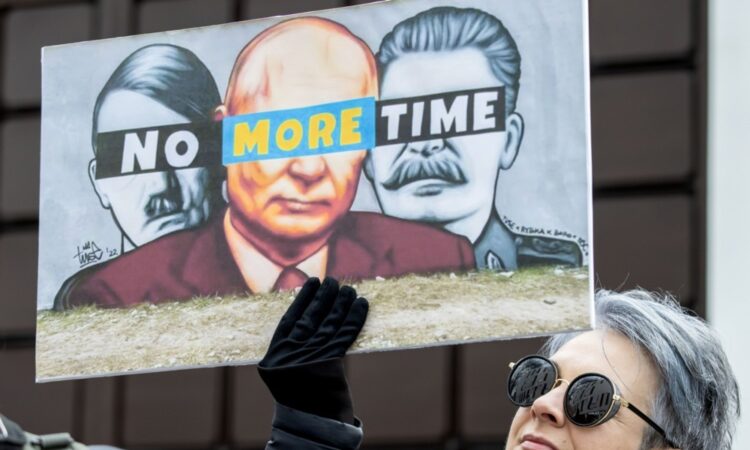
The proposals, which require the backing of all member states, would apply a windfall tax on profits generated by the immobilised reserves, aiming to use an estimated €3-billion ($3.3-billion) a year to fund the supply of weapons to Ukraine and boost the country’s defense industry, according to draft documents seen by Bloomberg News.
About €260-billion in assets of the Russian central bank, mostly in the form of securities and cash, have been immobilised by G7 nations, the EU and Australia with more than two thirds of those blocked in the EU.
The funding has become especially critical as Ukraine faces a shortage of artillery and some $60-billion of US assistance remains blocked in Congress.
The Biden administration has been pushing G7 allies to seize the frozen assets outright and wants to see progress before a leaders’ summit in June, Bloomberg previously reported. But several European nations, including Germany and France, as well as the European Central Bank are reluctant.
Under the EU’s proposal, a share yet to be determined of the proceeds generated since Feb. 15 would be transferred to the EU bi-annually until sanctions are lifted. The funds would be initially allocated to the European Peace Facility, the bloc’s mechanism to reimburse weapons delivered to Kyiv, and to the EU budget’s Ukraine facility.
A share of the profits would remain with the central securities depositories holding the reserves to cover the costs of managing the assets and deal with any risks, including potential retaliation by Russia. Relevant expenses and corporation tax would also be deducted from the revenues before they are transferred. That would leave about €3-billion in net profits per year, according to some estimates.
The vast majority of the funds has been frozen through the Belgium-based clearing house Euroclear where they generated about €4.4-billion in profits last year.
Profits transfer
Profits generated in the past would be provisionally retained before being transferred to the EU within five years at the earliest, the draft proposals say.
Should risks materialise, “unexpected and extraordinary revenues generated by the central securities depository prior to 15 February 2024 should be used first to cover the corresponding expenses,” one of the documents says. “Modalities should be established for the transfer to the Union of amounts provisionally retained when they are not anymore necessary.”
The proposals will be discussed by EU leaders when they meet in Brussels later this week.
Poland’s Foreign Minister Radoslaw Sikorski told reporters after a meeting with his EU counterparts in Brussels on Monday that they’d made “a political decision, although not a legal one” to tap the windfall profits.
Josep Borrell, the EU’s foreign affairs chief, told reporters: “I cannot say there was unanimity, but a strong consensus to take this decision.” He added that some member states want more details.
However, several member states have been reluctant to back using the funds to provide Ukraine with military support, a split that risks delaying progress, according to people familiar with the matter.
Central securities depositories holding more than €1-million in frozen reserves and assets had been previously asked by the EU to set revenues generated aside, set up separate accounting procedures and were also prohibited from using the unexpected and extraordinary profits they’d generated. Those same institutions would be asked to provide the EU with regular reports as part of the bloc’s proposals.
![]()





